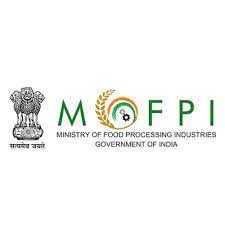CURRENT AFFAIRS
Get the most updated and recent current affair content on Padhaikaro.com
‘One District One Product’ scheme
- IAS NEXT, Lucknow
- 10, Jan 2022

The Food Processing Ministry had inked an agreement with NAFED for developing 10 brands as the One District One Product brands under the Pradhan Mantri Formalisation of Micro food processing Enterprises (PMFME) Scheme.
Of this, six brands have been launched recently.
The six brands include Amrit Phal (developed under the ODOP concept for Gurugram, Haryana), Cori Gold (developed for coriander powder which is the identified ODOP for Kota, Rajasthan), Kashmiri Mantra, Madhu Mantra (developed under the ODOP concept for honey from Saharanpur, Uttar Pradesh), Somdana (developed under the ODOP concept of millets from Thane, Maharashtra), and Whole Wheat Cookies of Dilli Bakes (developed under the bakery ODOP concept for Delhi).
All the products will be available at NAFED Bazaars, E-commerce platforms, and prominent retail stores across India.
About the Pradhan Mantri Formalisation of Micro food processing Enterprises (PMFME) Scheme:
Launched in 2020, the scheme will be implemented for five years until 2024-25.
It is for the Unorganized Sector on All India basis.
Objectives:
- Increase in access to finance by micro food processing units.
- Increase in revenues of target enterprises.
- Enhanced compliance with food quality and safety standards.
- Strengthening capacities of support systems.
- Transition from the unorganized sector to the formal sector.
- Special focus on women entrepreneurs and Aspirational districts.
- Encourage Waste to Wealth activities.
- Focus on minor forest produce in Tribal Districts.
Salient features:
- Centrally Sponsored Expenditure to be shared by Government of India and States at 60:40.
- 2,00,000 micro-enterprises are to be assisted with credit linked subsidy. Micro enterprises will get credit linked subsidy at 35 per cent of the eligible project cost with ceiling of Rs. 10 lakh.
- Beneficiary contribution will be minimum 10 per cent and balance from loan. Seed capital will be given to SHGs (Rs. four lakh per SHG) for loan to members for working capital and small tools.
- Cluster approach.
- Focus on perishables.
Administrative and Implementation Mechanisms:
- The Scheme would be monitored at Centre by an Inter-Ministerial Empowered Committee (IMEC) under the Chairmanship of Minister, FPI.
- A State/ UT Level Committee (SLC) chaired by the Chief Secretary will monitor and sanction/ recommend proposals for expansion of micro units and setting up of new units by the SHGs/ FPOs/ Cooperatives.
- The States/ UTs will prepare Annual Action Plans covering various activities for implementation of the scheme, which will be approved by Government of India.
- A third party evaluation and mid-term review mechanism would be built in the programme.
- National level portal would be set-up wherein the applicants/ individual enterprise could apply to participate in the Scheme. All the scheme activities would be undertaken on the National portal.
Benefits of the scheme:
- Nearly eight lakh micro- enterprises will benefit through access to information, better exposure and formalization.
- It will enable them to formalize, grow and become competitive.
- The project is likely to generate nine lakh skilled and semi-skilled jobs.
- Scheme envisages increased access to credit by existing micro food processing entrepreneurs, women entrepreneurs and entrepreneurs in the Aspirational Districts.
- Better integration with organized markets.
- Increased access to common services like sorting, grading, processing, packaging, storage etc.
Why do we need this scheme?
There are about 25 lakh unregistered food processing enterprises which constitute 98% of the sector and are unorganized and informal. Nearly 66 % of these units are located in rural areas and about 80% of them are family-based enterprises.
This sector faces a number of challenges including the inability to access credit, high cost of institutional credit, lack of access to modern technology, inability to integrate with the food supply chain and compliance with the health &safety standards.
Strengthening this segment will lead to reduction in wastage, creation of off-farm job opportunities and aid in achieving the overarching Government objective of doubling farmers’ income.